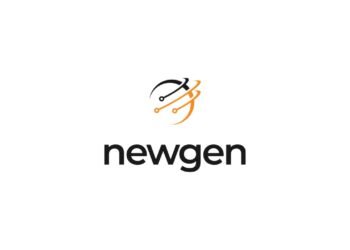YES BANK had a negative average net profit as per Section 135(5) for the financial years 2020-21 and 2021-22 and accordingly did not have any CSR obligation and or CSR projects during the last two financial years. Therefore, the impact assessment requirement is not applicable to the Bank’s CSR projects. However, as a best practice, a third-party impact assessment was conducted for the Bank’s project on providing access to safe and clean drinking water to over 1000 rural households in Maharashtra.
Profit and Loss account on CSR-related activities is ‘Nil’
The amount required to be spent by the Group on CSR during the year was ‘Nil’ (previous year Rs. ‘Nil’). Amount spent towards CSR during the year and recognised as an expense in the Profit and Loss account on CSR-related activities is ‘Nil’ (previous year Rs. ‘Nil’). With ‘Nil’ CSR budget, while there were no new spends for CSR, the Bank continued to monitor ongoing positive impact projects initiated in previous years and to oversee the utilisation of corpus donations made in previous years to YES Foundation.
Employee Volunteering Virtual Experience
Through its Employee Volunteering Virtual Experience (EVOLVE) initiative, the Bank enabled its employees to contribute to community development. This year, more than 2,000 YES BANKers contributed nearly 3,000 volunteering hours towards social causes. The objective of employee volunteering activities was to reach out and support COVID patients, rural farmers, and underprivileged youth. YES BANK aims to contribute towards nation-building and make a meaningful and measurable impact in people’s lives. YES BANK undertakes CSR initiatives to promote principles of social responsibility and inclusive growth through awareness and support, strengthen the trust of its stakeholders, including society at large and establish the Bank as a responsible corporate citizen.
Corporate Social Responsibility (‘CSR’) Policy
Through its Corporate Social Responsibility ethos, YES BANK has created stakeholder value by implementing projects based on unique models with scalable and sustainable impact. Guided by its Corporate Social Responsibility (‘CSR’) Policy, the Bank has delivered internal and external positive socio-environmental impact by following a unique approach.
Approach Towards CSR
• Promote principles of social responsibility and inclusive growth through awareness and support.
• Invest in socially and environmentally responsible activities to create a positive impact.
• Engage with stakeholders to further the sustainability agenda of the Bank and empower them with knowledge.
• Collaborate with like-minded institutions and forge partnerships towards addressing the needs of the stakeholders.
• Monitor the environmental and social investment of YES BANK through structured governance and transparent performance indicators.
Focus area under CSR
• Promote education and livelihood enhancement
• Promote gender equality
• Ensure environmental sustainability
• Promote rural development
The CSR Governance
YES BANK community development initiatives are driven by its five-pronged approach towards CSR – Promote, Invest, Engage, Collaborate and Monitor. The Bank’s CSR Policy guides the Bank in ensuring that its initiatives are mapped to the focus areas and are relevant, effective and replicable. All projects have clear feedback mechanisms weaved, with a focus on long-term sustainability and active community ownership.
One of the myriad ways in which the Bank assesses sustainability and community ownership of its projects is through an impact assessment study. This year, an impact assessment study for a drinking water project in the Raigad district of Maharashtra was conducted. The study, undertaken by an independent third party, concluded that the project met its objective of providing safe drinking water to 1,600 rural households, raised awareness on waterborne diseases and enabled the community to save electricity costs through the installation of solar panels.
Social Return on Investment
The Social Return on Investment calculated for this project was that for every Rs. 1 invested in the project, Rs. 10.17 of social value was generated. The study also concluded that the project was sustainable since 99% of the respondents knew whom to contact in case of repairs and 85% of the respondents were confident that the water structures will be regularly maintained through the water committees formed.
Financial Literacy initiatives
The Inclusive and Social Banking unit has a range of financial products and services targeting the Bottom of the Pyramid in rural, semi-urban and urban India. The Bank also undertakes Financial Literacy initiatives for the underserved. The Bank has designed customised modules in vernacular languages and over 8.6 lakh ISB customers have been provided basic financial literacy training through these modules to date (2.5 lakh in this FY). Besides, over 1,320 Financial Literacy Camps have also been conducted this year by the Rural Branches of the Bank. Through its CSR mandate, the Bank is driving key initiatives in livelihood and water security, skill development and environmental sustainability, among others.
CSR Impact assessment study
The Bank conducted an impact assessment study of its drinking water project in the Raigad district of Maharashtra. The study, undertaken by an independent third party, concluded that the project met its objective of providing safe drinking water to 1,600 rural households.






















